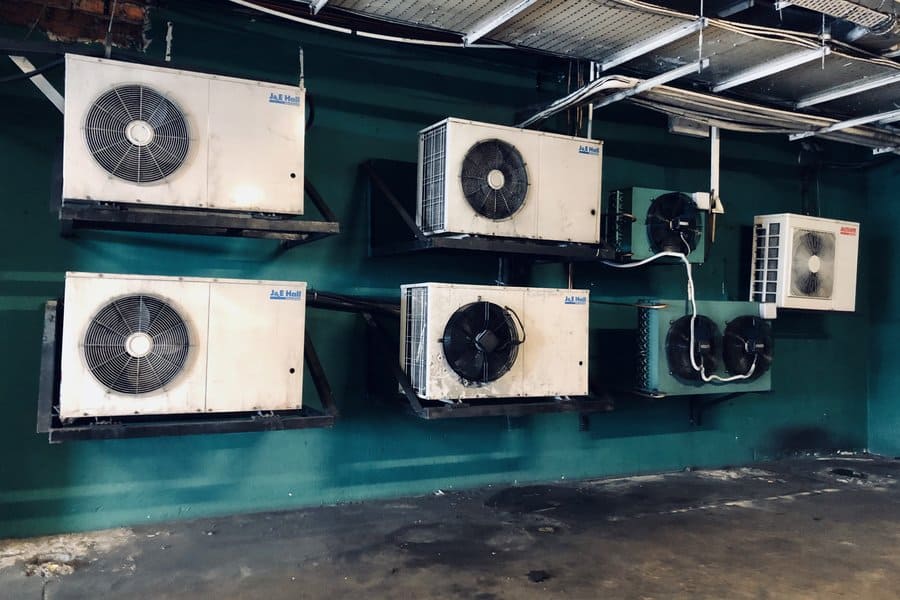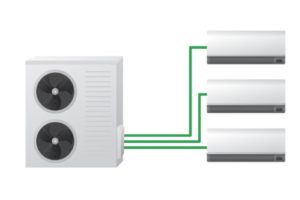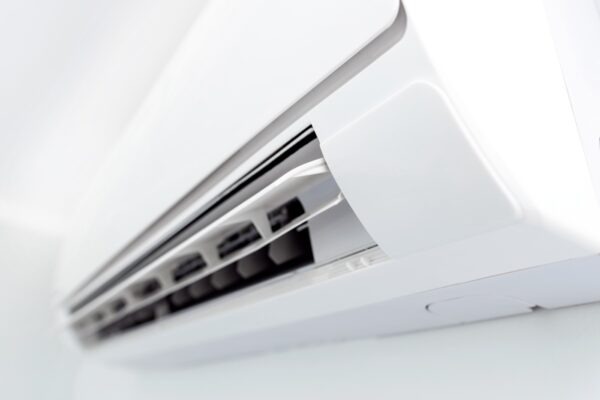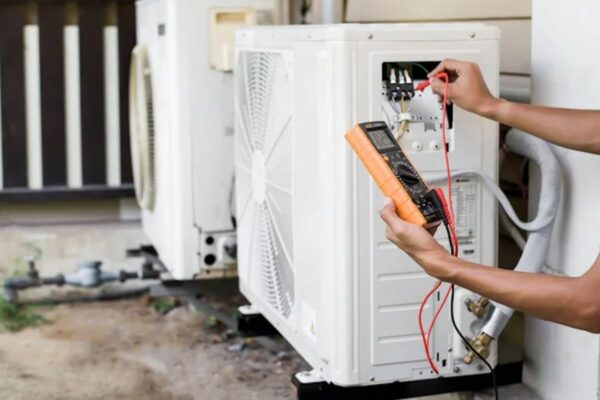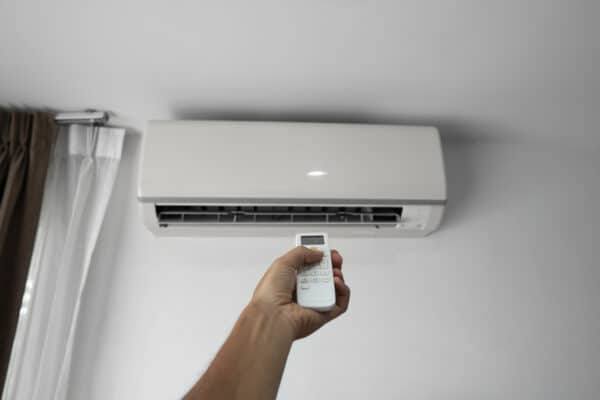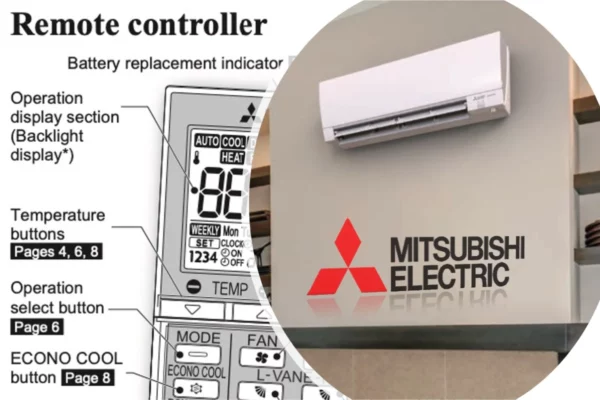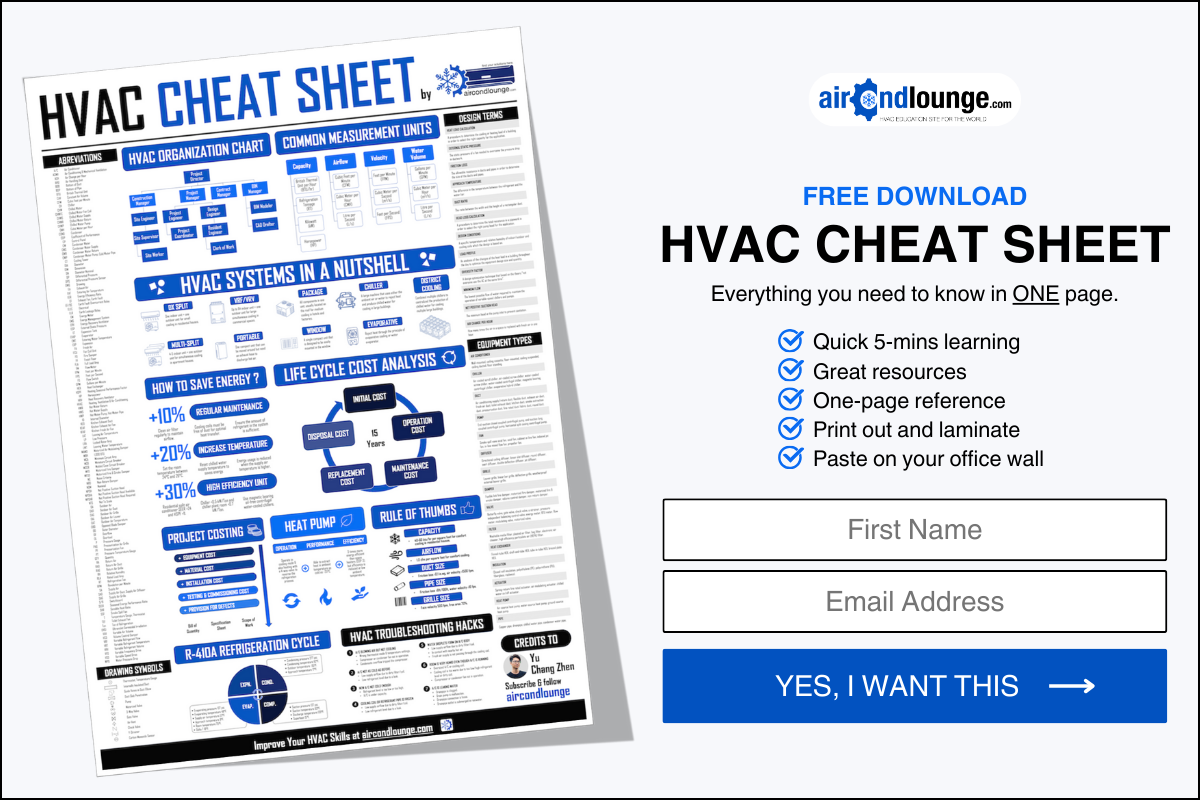Is Air Conditioner Exhaust Harmful? The Outdoor Unit
When I was a kid, I always avoided the air conditioner exhaust air because it is hot, it looks dirty and harmful. But, is it true that the exhaust harmful?
The exhaust air from the outdoor unit of the air conditioner is not harmful. The exhaust does not produce any harmful chemical or gas. In fact, the exhaust air is merely atmospheric air at a higher temperature. However, dust will build up at the outdoor unit and the exhaust air can become dirty if the outdoor unit is not cleaned regularly.
Some people misunderstood that the air conditioner produces harmful gases that are bad for health. Understanding the working principle behind the outdoor unit of the air conditioner and the refrigerant gas will clear things up.
Understanding the Outdoor Unit of the Split Air Conditioner
The outdoor unit of the air conditioner gets only a little attention compared to the indoor unit because it always humbly works at the back of the house and we probably only see it once during the installation.
Hence, it is understandable that most people have lesser knowledge of the outdoor unit. Many people may not realize that the outdoor unit is the main engine that drives the air conditioning system.
What Happen at the Outdoor Unit of the Air Conditioner?

A modern air conditioner uses the principle of refrigeration cycle to remove heat and moisture from a room to achieve cooling and improve comfort. The refrigerant absorbs the heat from the evaporator and rejects the heat at the condenser.

I found the above diagram at ResearchGate which best illustrates the indoor unit and outdoor unit of the split air conditioner. The main components inside the outdoor unit are the compressor and the condenser. The compressor compresses the refrigerant gas and pushes the gas to the condenser.
Most of the condenser is a finned tube heat exchanger. A cooling fan will introduce outside air to remove the heat from the condenser. When the temperature drops, the refrigerant gas condensed into liquid form and continues its journey to the evaporator.
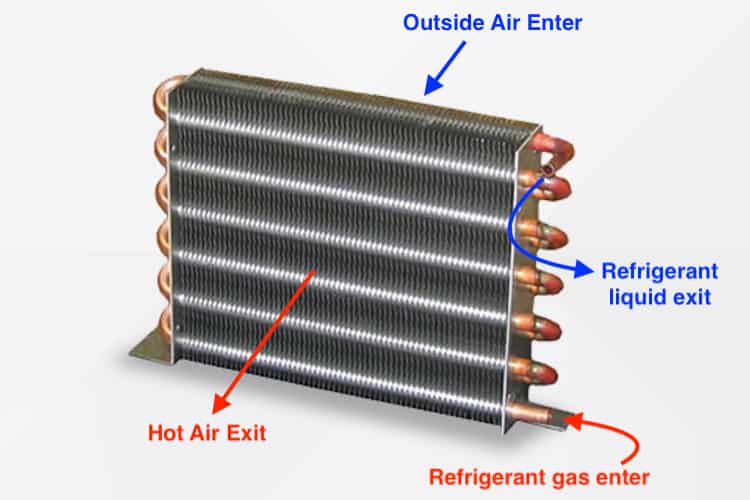
Image Captured from Exporters India.
We can see that the exhaust air from the outdoor unit of the air conditioner is just the outside air at a higher temperature. Therefore, it is not harmful.
As you can see in the above photo, these fins are closely packed together and they can easily collect dust. Thus, the exhaust air from the outdoor unit of the air conditioner can be dirty if the fins are not cleaned regularly.
What About the Refrigerant Gas?
In an air conditioning system, the refrigerant works in a closed-loop. The system does not consume any refrigerant nor discharge any refrigerant to the environment unless there is a leakage in which the air conditioning system will stop working.
Back in the old days, air conditioners were using R22 refrigerant. Then, the R22 refrigerant was obsoleted and R410a was the common refrigerant. Now, the industry is moving towards R32 refrigerant. These refrigerant switches are all about the effort to help to reduce ozone depletion and slow down global warming by using a more environmental-friendly refrigerant.
R22, R410a, and R32 are classified as Class A (Lower Toxicity) refrigerants. According to ASHRAE Standard 34, there is no identified toxicity at concentrations equal and below 400ppm for Class A refrigerants. For these refrigerants to reach a concentration of 400ppm is almost impossible in a typical house because of natural ventilation.
The leaked refrigerant gas at the outdoor unit will immediately be carried away by the slightest airflow. The refrigerant gas will never reach a concentration level where it becomes toxic. Hence, even with the refrigerant gas leaking, the air conditioner exhaust air is still not harmful.
Is Portable Air Conditioners Exhaust Air Harmful?
Portable air conditioners exhaust air is not harmful. The exhaust air is merely hot air that supposed to be discharged to the outside of the house. If you inhale the exhaust air of portable air conditioners, you are fine.
However, allowing the exhaust air of your portable air conditioner to circulate inside your house greatly reduces the cooling effect and increases the power consumption of the portable air conditioner.
Although the exhaust air of portable air conditioners is not harmful, you need to direct the exhaust air to the outside of your house in order for the portable air conditioner to work properly.
If you are looking to buy a new portable air conditioner, feel free to check out my recommended portable air conditioner.
Can I Put the Outdoor Unit of the Air Conditioner in an Enclosed Space?
The exhaust of the outdoor unit is not harmful. So, can you put it in an enclosed space? The answer is no because of the hot air.
If the outdoor unit is placed in an enclosed space, the surrounding temperature will quickly rise to a point where there is no temperature difference for the heat transfer process to happen at the finned tube heat exchanger. Thus, the refrigerant gas is unable to condense and the system fails. This is called air conditioning short cycle.
When short cycle happens, the safety device built inside the outdoor unit will stop the system operation to prevent any damage to the components. The air conditioner is unable to operate until the surrounding air cools down. Therefore, never ever install the outdoor unit of the air conditioner in an enclosed space.
I have an article discussing the effects of outside temperature on air conditioner. You may check it out on the tips I provided to reduce the impact of the outside temperature.
Fact 1: The Utilization of Exhaust Air
A heat pump works in the opposite direction of an air conditioner. Instead of exhausting hot air, a heat pump exhaust air is cold. Because the exhaust air is not harmful, many people connect a duct at the outdoor unit of the heat pump to channel the cold air into utility spaces such as the storeroom and corridor so that they can enjoy the cooling while not paying extra money for air conditioners.
Fact 2: The Refrigerant Refilling Process
Have you seen how technicians refill the refrigerant of the air conditioner? They connect a pressurized tank of refrigerant to the outdoor unit of the air conditioner and let the pressure do the work. When they open the ports at the outdoor unit for pipe connection, some amount of refrigerant will leaks until they tighten up the connection.
You don’t see the technicians wear any mask or protective equipment because the leaked refrigerant is not concentrated enough for it to cause any harm to the technicians.
Related Questions
Is it safe if you don’t vent a portable air conditioner? Yes, it is safe not to vent a portable air conditioner. But, the temperature of your room will not be reduced. However, dehumidification will still take place. Find out more in Ventless Portable Air Conditioner: Does It Really Works?
Do air conditioners emit harmful gases? No, air conditioners do not emit harmful gases in normal operation. Unless there is a leakage in which the air conditioner will stop working, the refrigerant will continue to work in a closed-loop.
If you have anything to add (or ask) about this topic, leave a comment down below!


